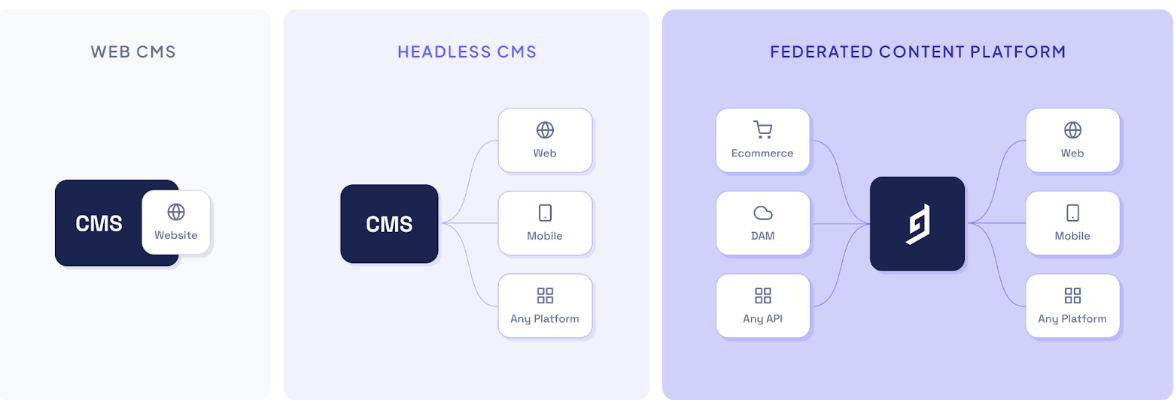
In the early days of content management systems, you had a tool for creating and storing content, typically for a website, and nothing more. Over time, as more output options came along beyond the website, headless content management systems developed to make it easier to generate content for multiple formats from a single source.
German startup Hygraph has taken that idea a step further, announcing an API today that enables developers to pull content from a variety of sources and put that content to work in multiple formats or even content-centric applications. Hygraph CEO and co-founder Michael Lukaszczyk says that his company, which was previously called GraphCMS, calls this approach a federated content platform.
“The federated content platform is a content platform that is not only front-end agnostic, but also back-end agnostic,” he said.
He believes that this approach completely changes the CMS concept. “The headless CMS allowed a one-to-many relationship between the CMS platform and the destinations. We are turning things around with a many-to-many relationship. [Our solution lets you take advantage] of all your content sources, all of your investments that you’ve made in your enterprise tech, and we aggregate them with one universal Content API, while allowing you to distribute the content to any channel in a way that’s extremely flexible,” he said.

On the left is a traditional CMS (one to one), in the middle a headless CMS (one to many) and on the right a federated content platform like the one from Hygraph (many to many). Image Credits: Hygraph
The system is based on the GraphQL API, which accounts for the original name of the company. He says, as an example, the content could come from an e-commerce system, a CRM or virtually any system you can access via API. The content gets pushed through the GraphQL API and the developer can define any output such as mobile, watch or laptop.
“You can integrate all those systems on the API layer with our federation mechanism. And the developer and implementing applications only needs to use one universal GraphQL API that serves all the content and data from all those third party systems,” Lukaszczyk explained.
The startup, which is based in Berlin, launched in 2017 and has raised around $14 million, according to Crunchbase data. The company currently has 65 employees, and as he looks at building a diverse organization, he says there are many different vectors to diversity.
“First, we’re looking at gender diversity. So our head of people is female and we’re building an HR team that is mostly female to attract more female talent, as well. We’re also looking to fill some leadership roles with more female candidates,” he said. Beyond that, the company is looking at things like cultural and age diversity and other factors as it builds a worldwide workforce.
With the new product, the startup will charge based on the number of data sources developers plug into the API. The content federation API was released earlier this summer in soft beta, and is generally available starting today.


![Read more about the article [Funding alert] Global fund Amasia leads Series A round of Living Food](https://blog.digitalsevaa.com/wp-content/uploads/2022/01/CopyofImageTaggingNewBrandingEditorialTeamMaster-1641360329117-300x150.jpg)







